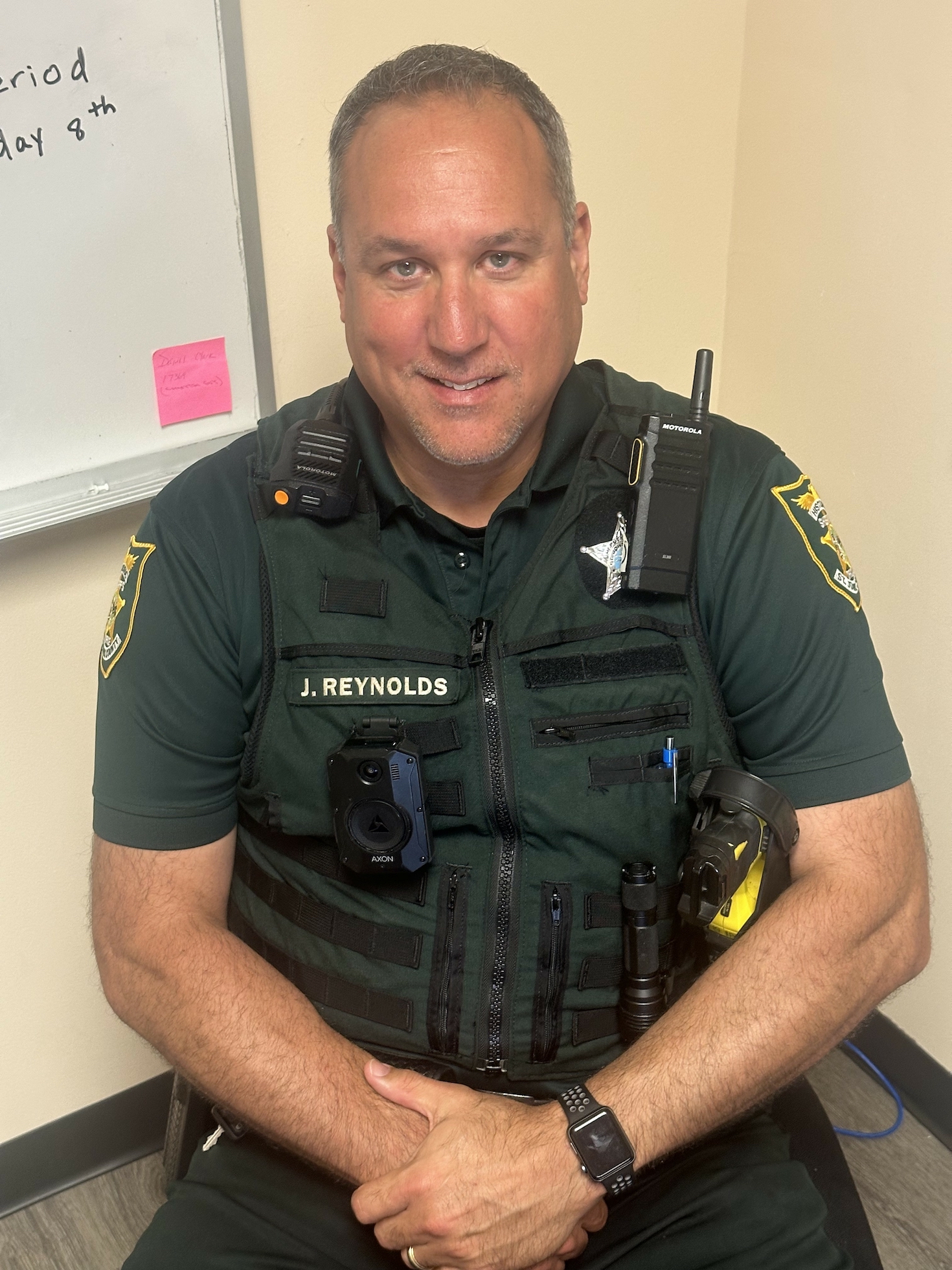By Nate Wicker
On December 14, 2012, in Newtown Connecticut, a 20-year-old man shot and killed 20 students and six adults when he opened fire at Sandy Hook Elementary School. Deputy Reynolds was starting his shift that morning working in the undercover narcotics division for the Suffield Connecticut Police Department when the call came in. “It was a statewide call, I went 100 miles per hour down the highway to the school and by the time I got there they had already blocked everybody off from entering the school because by the time I got there it was over,” stated Deputy Reynolds. “You wouldn’t believe the number of cops that were there… very sad thing.”
Deputy Reynolds explained how a tragedy like Sandy Hook resonates with someone years after the event through talking about one of his friends he met at the police academy. This officer was one of the initial responders to the event and was inside the school. Reynolds explained that what the officer saw inside led him to kill himself four years after the shooting, leaving behind a three and four-year-old. “I was so mad at him but I don’t know what he was going through, I didn’t have to see all those dead kids, he did,” said Reynolds.
Deputy Reynolds explained how many other officers struggled mentally after the event and he felt the town’s response to the officers’ mental health struggles was inadequate taste and lackluster. “In my opinion the town didn’t handle it correctly… [officers] were saying things like ‘I can’t do this anymore, I can’t come back to work,’.” Newtown took the approach to threaten firing officers who didn’t show up for work following the event, neglecting the mental toll the shooting took on officers. Deputy Reynolds emphasized how, as an officer, “I had nightmares forever… you feel like you failed a person,” when someone innocent dies. Shortly after the shooting, mental health related nonprofits and other police agencies came forward to assist in responding to PTSD and other mental health struggles the responding officers developed. Examples of this are a group called Heart 9/11, a group of first responders to the terrorist attacks on 9/11/2001, who came to Newtown in early 2013, shortly after the shooting, to talk about strategies to help those affected and deal with post-traumatic stress.
Since the Sandy Hook shooting, there have been 189 more school related shooting incidents, with 279 fatalities, according to the BBC. Stricter safety protocols have been put in place at Florida high schools, such as mandating a deputy to be on school campuses every day. Referring to school safety standards, Deputy Reynolds believes “they are a lot better than they used to be… if somebody is going to come in and try to do something, they’re going to think twice about it knowing there is a cop on campus with a gun.” He followed by saying “every day I think it’s going to be the day, I’m always watching things and checking doors, I would take a bullet for you guys.” Deputy Reynolds emphasized that St. Johns County has worked to ensure safety measures are in place to keep the schools safe.
“If you see a friend struggling, writing or saying strange and crazy things, it doesn’t make you a snitch to tell somebody, you could be saving somebody’s life.”
Deputy Reynolds
Hailing from Syracuse, New York, Ponte Vedra High School’s (PVHS) Youth Resource Deputy, Deputy Reynolds, brings in over 28 years of law enforcement experience to PVHS. His law enforcement journey began in 1996 in Sarasota, Florida, where he moved shortly after graduating college and where he met his wife. His interest in becoming a cop started at a much younger age though, “I didn’t grow up in a great area of the city and my grandma lived in a worse part than me”. Reynolds continued, “when I was seven and my brother was eight when we were visiting my grandmother and we were throwing a football in the front yard when a dude came running between us and a man behind him shot and killed the dude right between my brother and I.” Deputy Reynolds went on to emphasize how the professionalism of the cops that day when assessing the crime, interviewing him, and going about their job left a lasting impact that turned into a life dedicated to public safety and law enforcement. “It was really cool, not the person getting killed, but the response of the cops that day is what made me want to be a cop.”
He was a three-sport athlete in high school and is able to speak conversational German. In college, Deputy Reynolds played basketball, starting all four years and winning a dunk contest his freshman year. “I was really good, I played power forward and I could jump.” When asked if he could still dunk today, Deputy Reynolds laughed and said “I’m too old man.”
Deputy Reynolds wanted to finish by emphasizing, “if you see a friend struggling, writing or saying strange and crazy things, it doesn’t make you a snitch to tell somebody, you could be saving somebody’s life.”
Pictured: Deputy Reynolds at PVHS





